New Delhi: The past two months have been a dark time for Rubeida, a 25-year-old widow and mother of two, but the easing of the Covid-19 lockdown has brought her some hope. Sustenance will still be far from easy for the beggar, but the return of cars and two-wheelers on the roads makes the fight for daily survival less difficult.
“The last two months have been horrible. During the lockdown, there were no cars on the road so there was no one we could ask for money,” said Rubeida as she tried to lull her younger son to sleep under the Vasant Vihar flyover where the family lives.
Rubeida resides under the flyover with her two children and 75-year-old father, Alamul Sadasat. Her husband died in an accident four months ago, hit by a car hardly 100 metres from the flyover.
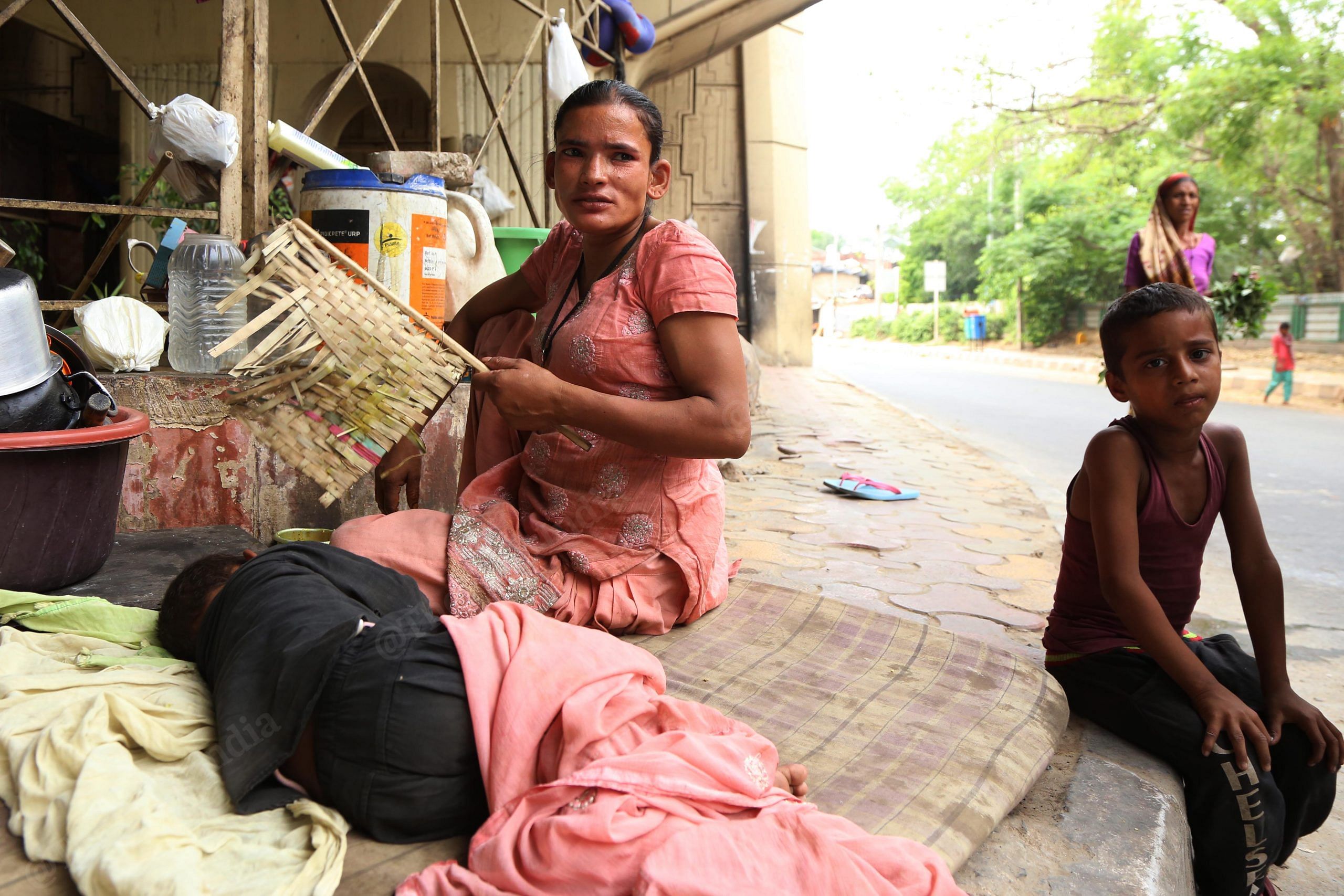
Sadasat said he had been begging on the streets of Delhi for the last 20 years. “But the last 40 days were easily the most challenging times of my life,” he added.
Also Read: Indians are getting complacent about Covid-19 — just what the virus wants
Desperation, not choice
As of 2018, according to central government data, Delhi had just over 2,000 beggars. The same year, the Delhi High Court decriminalised begging, emphasising that people were forced to beg for alms as a last resort to meet their basic needs, and that it wasn’t a matter of choice.
Even so, the court reportedly said the Delhi government was at liberty to bring an alternative mechanism to deal with beggary rackets whereby trafficking victims are forced onto the roads to earn money for racketeers.
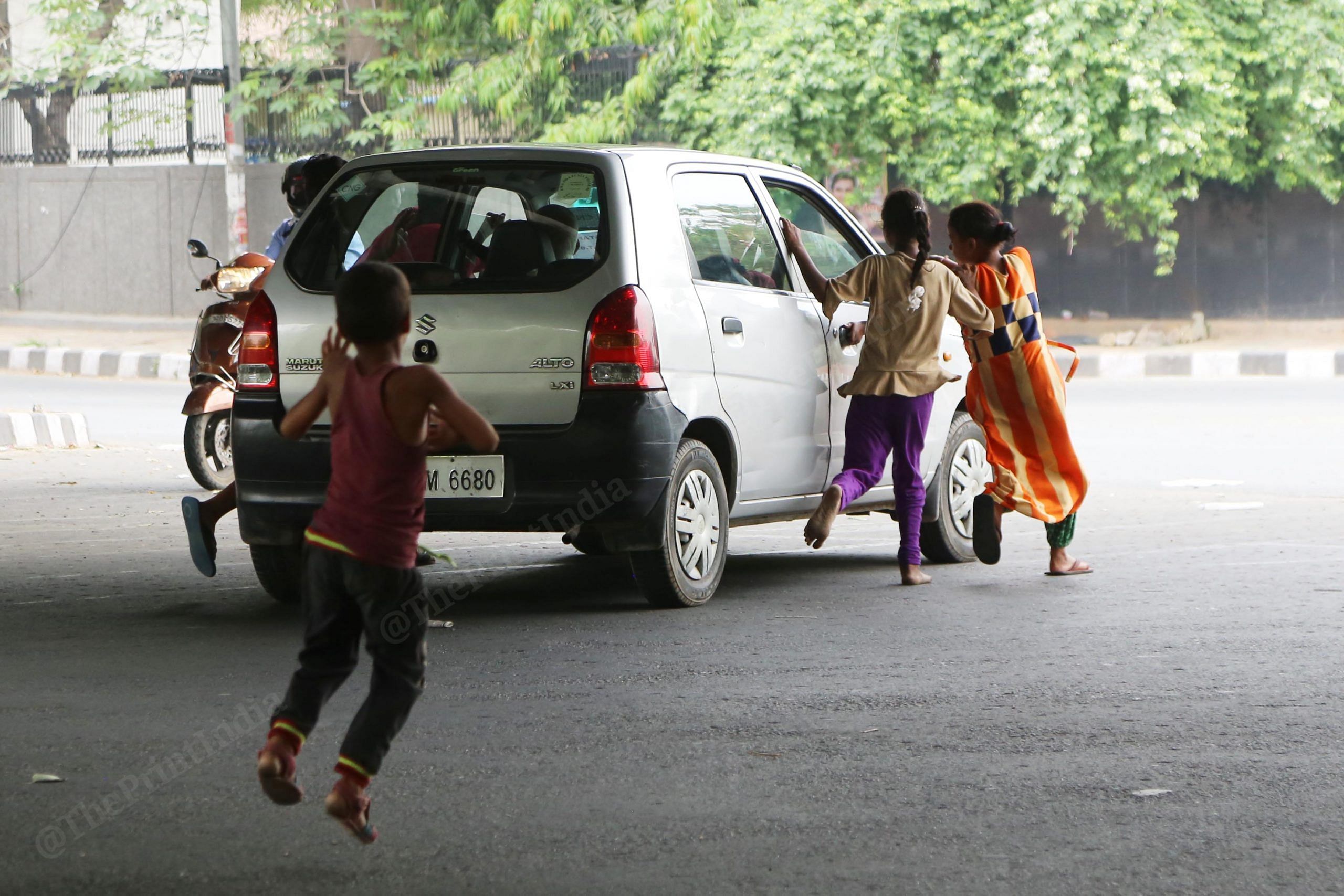
However, in 2016, both the Delhi Police and the Arvind Kejriwal government had claimed that there was no begging mafia in the national capital.
Part of a criminal operation or not, beggars have become a common sight across the urban Indian landscape, including Delhi — their desperate conditions standing in sharp contrast to the pockets of affluence they throng for alms, a live testament to the inequality that has reportedly stalked India’s growth story over the years.
For beggars like Sadasat and Rubeida, the lockdown was a bolt out of the blue, depriving them of their daily stream of income. In the easing of restrictions from 4 May, and the return of movement to the streets of Delhi, Sadasat sees a “good sign”.
“I am really hoping this means things return to normal soon and there will be enough people on the streets to show us mercy,” he said.
Also Read: Covid-19 fight is a Test match, not a T20. Here’s what India needs to do to win
How they survived the 40-day lockdown
The stories of survival during the lockdown differ among beggars. While some say they spent the time switching between flyovers in fear of police, others recall how the personnel of the force went out of their way to help them get by.
Rana, a 35-year-old who begs at the Jawahar Lal Nehru University traffic signal, said police didn’t “allow us to stay anywhere for too long”. “So we just kept running from one flyover to another,” he added.
The lockdown was hard for Rana and his family. “Before the lockdown, we could sustain ourselves for a few days if some passerby decided to be generous. But during the lockdown, there was hardly a person in sight,” he said.
For food, Rana and his family would queue up outside shelter homes and quarantine facilities. Shelter homes across Delhi have been doubling up as feeding centres for the homeless and the poor during the lockdown.
“We have just been going to shelter homes and quarantine facilities asking them for food during the past month,” he added.
However, Chandni, an eight-year-old, recalled instances of police generosity. “Police would get us fruits, and sometimes cooked meals. That’s how my friends and I survived this period,” she said.
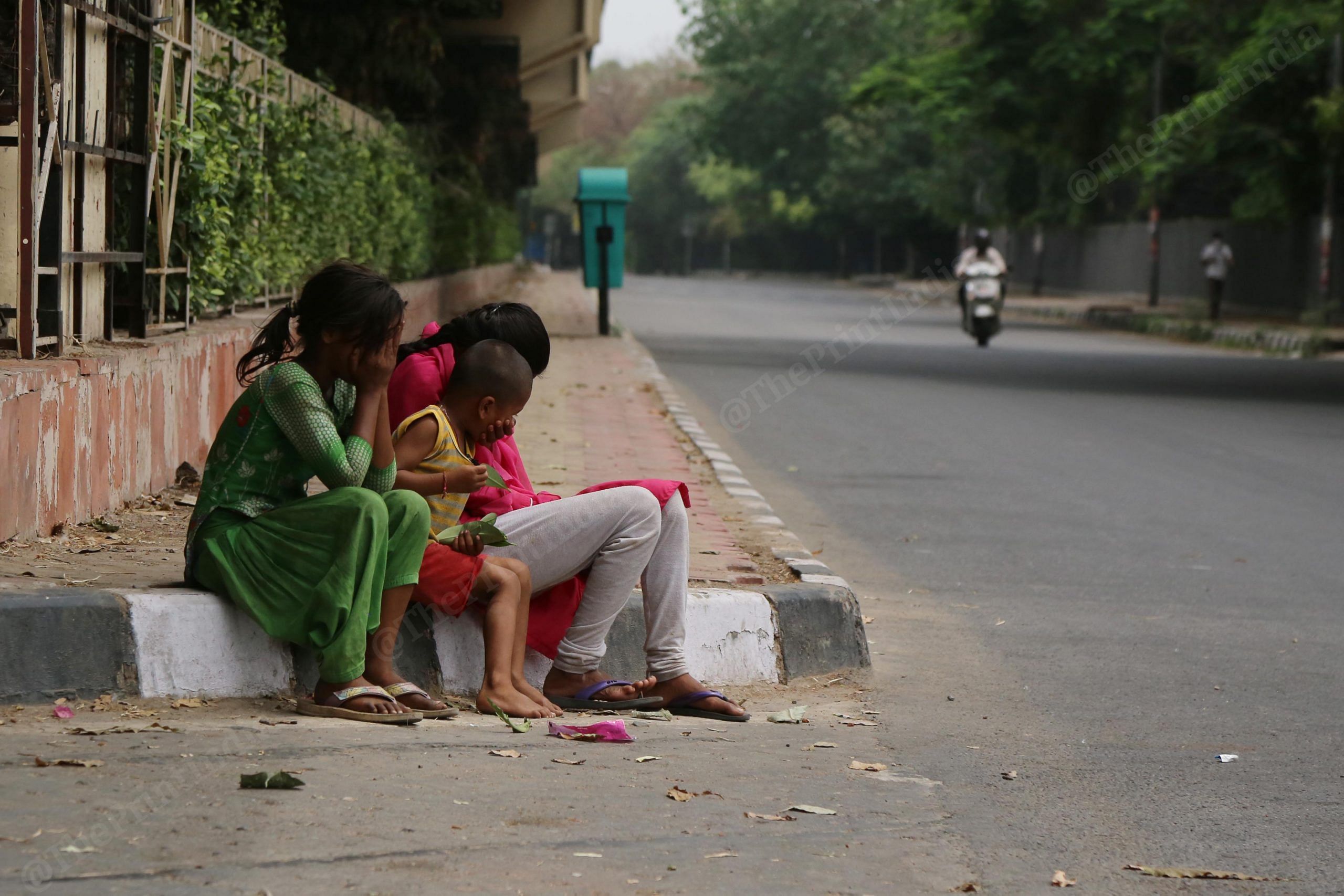
“Police were harsh towards all the beggars before the lockdown, but, during the last month, they have fed us kadhi-chawal, aloo-poori,” added Jannati, a 10-year-old who lives with her family near a Vasant Vihar flyover.
‘Waiting for a miracle’
Beggars, however, aren’t the only ones counting on the mercy of strangers passing by. The suddenness of the lockdown, which left many migrant labourers out of work overnight, put them in a similar position.
Even as many migrant workers continue to walk back to their villages, others have found spots on footpaths around the national capital to wait out the lockdown.
“I thought I would walk to my village like the others, but then I heard they are starting trains. Now I realised that getting a train ticket is so difficult,” said Gopal Singh, a migrant worker from Maharashtra’s Amravati.
“So, I have decided to just sit here and hope people show some humanity and give me something to eat,” he added.
Another worker said he sits on the footpath all day, hoping for a miracle that will turn the clock back two months.
“There is no point going home if I have no money,” said Virendra Kumar, a migrant worker from Uttar Pradesh who used to work in the wedding industry. “Kis muh se ghar me ghusenge (with what face will we return home)?,” he added. “Now I sit here, dependent on people’s charity, and hoping for a miracle.”
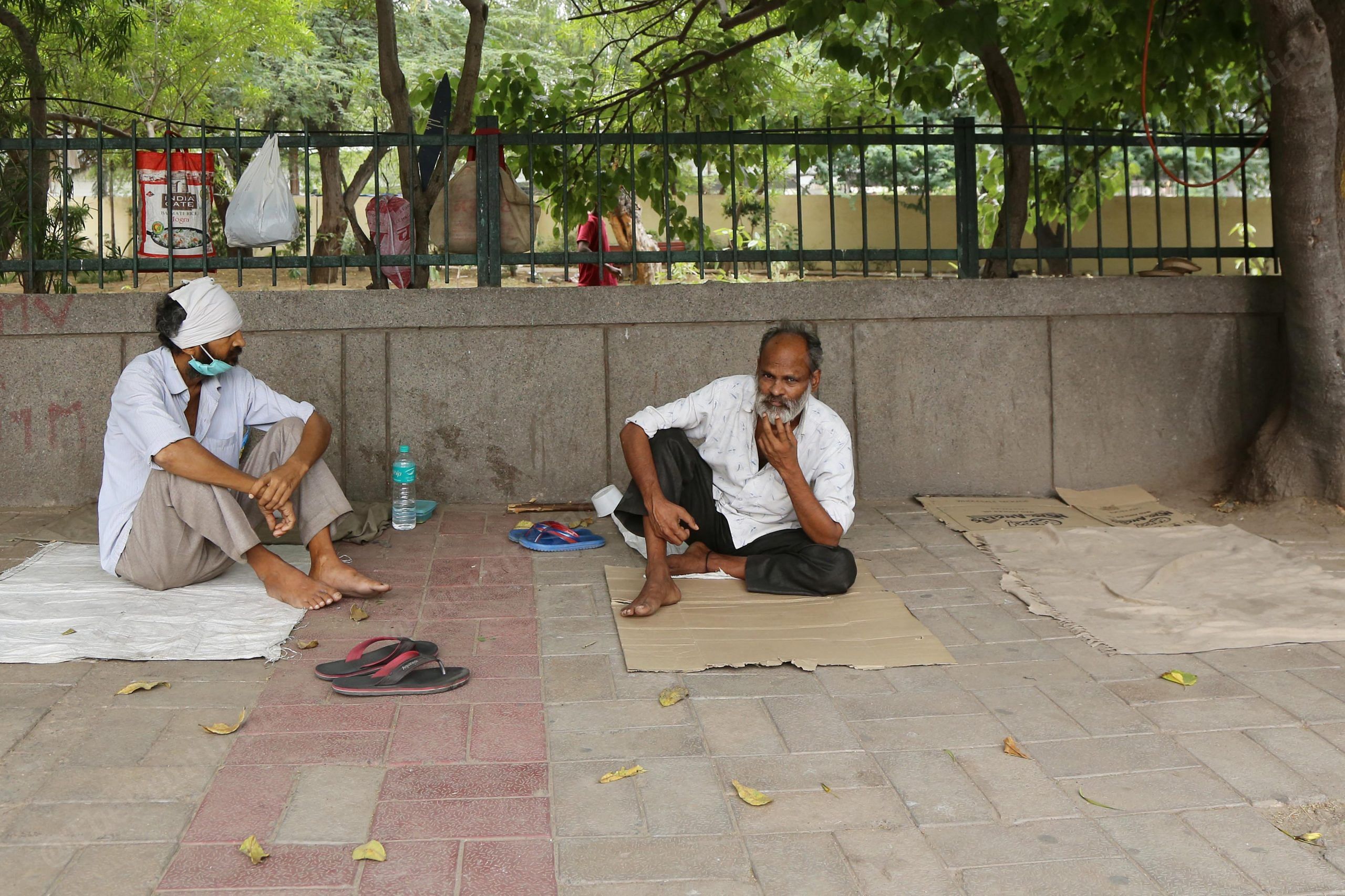
Also Read: Modi govt prepares to reopen hotels, Aarogya Setu and masks could be must for tourists


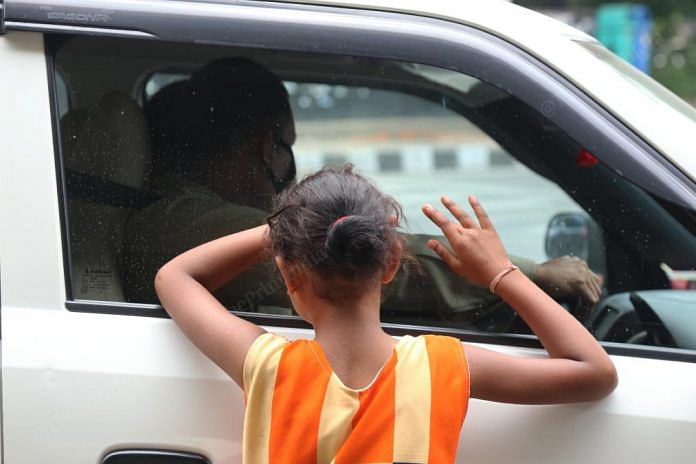

What ever happened to the beggary cess